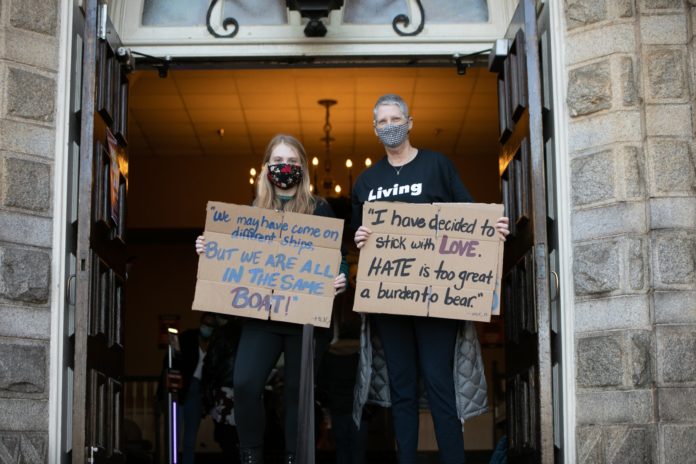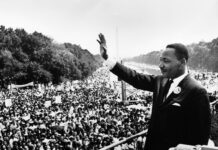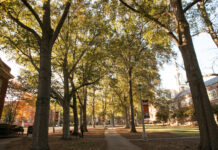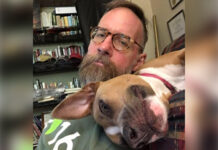
As I write these words, our nation is commemorating the birthday of Dr. Martin Luther King Jr.
I suspect that Dr. King would be surprised by what would become the impact of his life. He was just a young, Black, Atlanta-born, Baptist preacher without intention or aspiration for attaining national prominence. Yet in time, he would become the catalytic figure at the center of the civil rights movement, igniting the conscience of a nation against racial and economic inequality and inspiring the hopes of people — Black and white — who had long “been left out of the sunlight of opportunity.”
For his tireless and undeterred work for racial justice and harmony, Dr. King was awarded the Nobel Peace Prize in 1964. And now on the National Mall, along with memorials to Presidents George Washington, Abraham Lincoln and Thomas Jefferson, stands the imposing granite statue of Dr. King and an inscription reading, “With this faith, we will be able to hew out of a mountain of despair, a stone of hope.” Dr. King became the living embodiment of that hope for millions of people.
But, how? What did he do that made such a difference? He spoke. He spoke out. He spoke out the hard truths. He spoke out the hard truths that were painful to hear but necessary for healing. He spoke out the hard truths that were painful to hear but necessary for healing that no one else was willing to speak. He spoke them out from a jail cell in Birmingham, Alabama. He spoke them out, standing in front of the Lincoln Memorial in Washington, D.C. He spoke them out from high pulpits and on long marches. He called out the nightmare of racial segregation and the cruelty of injustice.
Dr. King was not naïve. He knew that what he said would come at price, but he refused to be silent. He would not hold his words in the face of the “fierce urgency of the now” of poverty, inequality and racial hostility. He spoke out. And, because he did not muffle his voice or mince his words, dark truths came to light and festering wounds began to heal. Civil rights legislation brought relief to those who suffered most, and court rulings opened the doors to those who had been locked out.
How could we not celebrate Dr. King, this heroic character in the American story? How could we not take at least one day a year to hear his voice again and to be challenged by his words once more? But, for all of our celebrating of his life and honoring of his memory, I am sure Dr. King would wish for something else. He would gladly forego every celebration, he would exchange every honor, if we could somehow find our own voice and fearlessly unleash it as he unleashed his.
In 1958, Dr. King published “Stride Toward Freedom: The Montgomery Story” in which he lamented, “If the moderates of the white South fail to act now, history will have to record that the greatest tragedy of this period of social transition was not the strident clamor of the bad people, but the appalling silence of the good people.”
As we think of the life and work of Dr. King, may we not be content with celebration until we have risked emulation. May we find our voice and raise it against every injustice that deprives, every insult that diminishes and every lie that deceives. The greatness of a nation and the virtue of its people are fragile and easily lost when the good people become appallingly silent.
Good people, in honor of the life and legacy of Dr. King, may we find the courage, compassion and calling to lift our voices with his in the sacred cause of justice for all God’s children. Then we will be free at last, free at last. Thank God Almighty, we will all be free at last.









